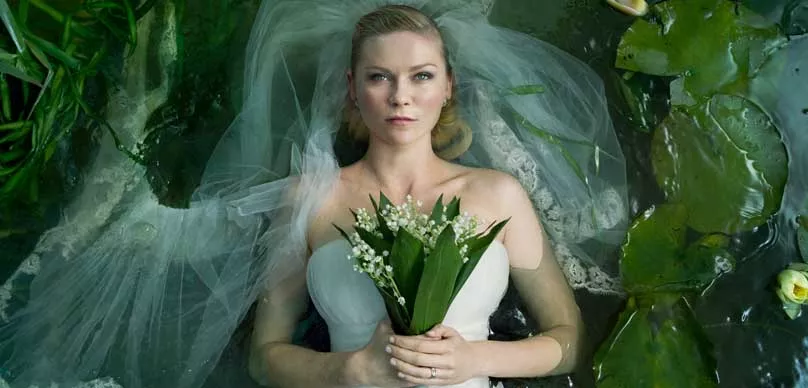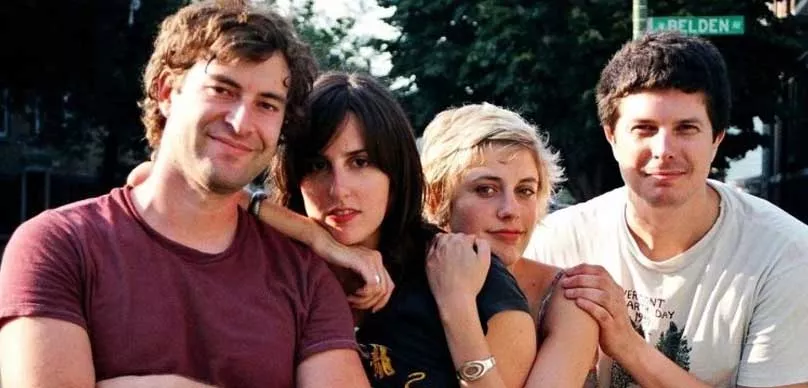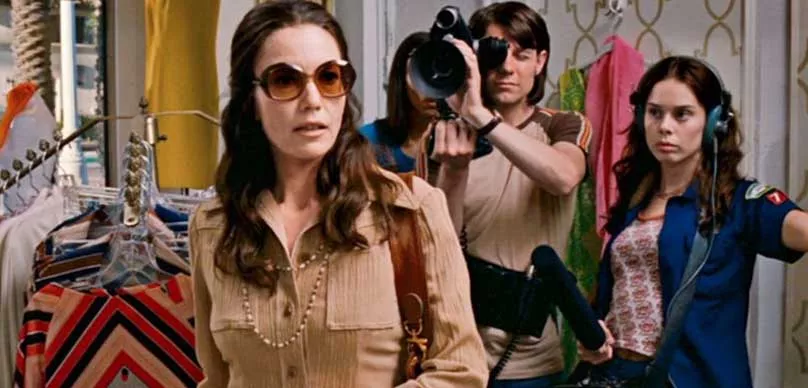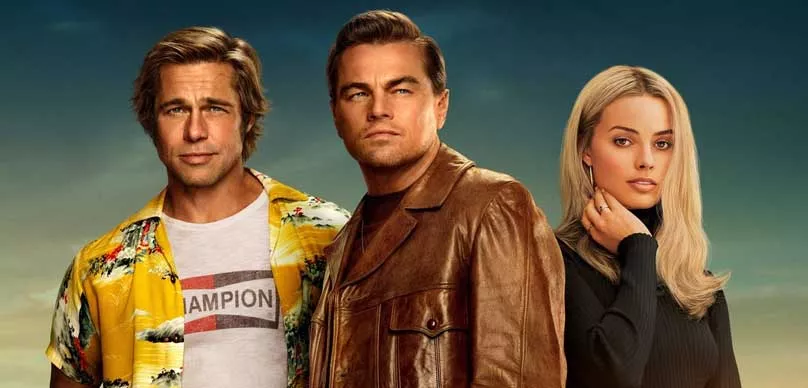In the history of dramatic films, Stanley Kubrick’s Barry Lyndon gets a beautiful ranking. It won a total of four Oscars under the production category. It is a film that is based on a novel written by William Makepeace Thackeray: ‘The Luck of Barry Lyndon,’ in 1844. The film itself was made in 1975. Stanley Kubrick was also the writer and producer of the film.
The characters who starred in it include Patrick Magee, Ryan O’Neal, Hardy Krüger and Marisa Berenson, among others. It revolves around the escapades of a fictional adventurer of the 18th century.
After its release, although the film received a lot of criticism, it is considered as one of the best films by Stanley Kubrick. In fact, polls conducted by BBC, Village Voice in 1999, Sight & Sound in 2002 and 2012, and Time in 2005, ‘Barry Lydon’ is one of the best films ever produced.
Why is this so? Anyone who has seen the film or read the plot would know better. Below is the plot of one of the finest drama movies to hit the TV screens.
The film opens with a narrator describing events, both present, and the past, taking place as the motion picture unfolds. This narrator tells the audience that in Ireland around for 50’s, the character playing Barry Redmond’s father gets into a fight over horse purchase, and is killed in the process, leaving behind a widow and a son.
Barry Lyndon grows up a depressed young man who was often in low spirits. He begins to have a crush on his cousin, Nora Brady, despite the fact that she is older than he is. She notices and goes as far as flirting with him during a card game, but it ends there.
This is probably because she sets her sights on a captain of the British Army, John Quin, who is affluent as well. This saddens Barry Lyndon greatly.
Meanwhile, with her family, Nora makes plans of using marriage to John as leverage to secure wealth. Barry, on the other hand, feeling spurned, sees John as an enemy.
This bad blood between the both of them, comes to a head one day, as the both men engage in a fight by the riverside, and Barry takes a shot at John before fleeing, thinking that he has killed him.
The police search for Barry Lyndon, but he outruns them, going towards Dublin, via the countryside. On his way, however, a notorious highway robber; Captain Feeney, dispossesses him of his horse, gun, and purse. Unable to do anything to defend himself, a sad Barry trudges ahead.
Getting to the next town, an opportunity presents himself. There is a promo going on for interested people to join the army, in return for an easy life and pension until death.
Barry Lyndon finds this interesting and enlists to join. While in the army, Barry has an encounter with a captain: Grogan, who turns out to be nice and easy going. It was Grogan who informed Barry that John, whom he thinks he killed, is alive. He also tells Barry that his bullets were replaced with something else and that the reason the fight took place, was that Nora’s family wanted Barry out of the way.
This was because Barry was proving to be an obstacle to Nora getting financially secure through marriage to John; therefore, they planned to have him killed but gave him a gun without real bullets. Barry Lyndon, of course, is greatly disappointed with this news, but he takes it in stride.
Soon after the war; the Seven Years’ War breaks out, and Barry’s regiment is posted to Germany to go and fight. On the battlefield, precisely during the Battle of Minden with a small part of the French Army, Captain Grogan is hit by the enemy, and it is obvious that he would not survive his injuries.
Barry decides that he has had enough and left the rest of his comrades, and as he leaves, he steals a uniform belonging to a courier officer, including his identification papers and his horse.
Passing through neutral Holland, he is stopped by Captain Potzdorf of the Prussian Army. Upon close inspection, the captain discovers that he is a runaway soldier traveling incognito and gives Barry Lyndon two options; either accept to be turned back to the British Army and killed for being a deserter or become a Prussian soldier.
Barry goes for the latter. Sometime later, he saves Captain Potzdorf’s life in battle and is given a special commendation by Frederick the Great.
The war finally ends two years later, in 1763 and Captain Potzdorf’s cousin, who is a police officer, employs Barry to serve an Irishman; Chevalier de Balibari, who is an expatriate and a professional gambler. This is no ordinary employment; the government thinks that Chevalier is a spy, so Barry’s true mission is to find out undercover.
But Barry has no plans to work undercover. He tells Chevalier everything, and they become fast friends, gambling together, especially as Barry has good eyesight, which is an advantage at home, tables. One day, during a game, the two partners cheat the Prince of Tübingen, who throws accusations at them, though without evidence.
The prince refuses to pay and begins to make trouble. Barry tells his employees what is going on and they, wanting to avoid the trouble that could stem from the aggrieved parties meeting, arrange for Chevalier’s expulsion from the country. Barry Lyndon tells Chevalier about their plan, and he runs away at nightfall.
Morning comes and Barry, who takes the disguise of Chevalier, is removed from the country by Potzdorf and his men; to freedom.
The previously separated partners meet again, and these two men traverse Europe, visiting gambling parlors and spas, and making money from gambling. Anyone who refuses to pay is forced to a sword duel with Barry Lyndon and ends up paying their debts. As time goes on, Barry sees how empty his life is, and decides to find a wealthy wife, to make something out of it.
His search pays at a gambling Spa, in Belgium, where he meets the Countess of Lyndon, who is not just wealthy, but beautiful as well. He goes after her and fortune smiles on him, with the death of the Countess’s husband, Sir Charles Lyndon. Barry makes the Countess his wife.
The second act opens to 1773, where a newly married Barry adopts his wife’s last name and makes England his home, living off her, with no money to his name.
The countess’s ten-year-old son, Lord Bullingdon, sees through Barry’s scheme and calls him a ‘common opportunist.’ Barry does not find this funny and resorts to physically abusing the child as often as he can.
Soon, the Countess gets pregnant and bears Barry’s son. However, the marriage becomes a sham, as a result of Barry Lyndon being an unfaithful husband and spending his wife’s money on luxurious frivolities and turning his wife to a loner.
A while later, Barry invites his mother to come and live with his family in the estate. The old woman after a period of her stay observes that Barry has everything to lose if Lady Lyndon dies because she has a first son who is not Barry’s.
She advises him to take a noble title to prevent this from happening. Barry Lyndon heeds his mother’s advice and befriends a well known Lord named Wendover, also spending a lot of his wife’s money to be accepted by members of high society.
Unfortunately, his efforts are in vain. During a birthday party in honor of Lady Lyndon, Lord Bullingdon, who is now almost an adult, takes to the stage and lets everyone know how much he dislikes his stepfather.
He goes on to add that he has decided to forgo his father’s estate as long as Barry is on its grounds and still his mother’s husband. The boy’s actions and words infuriate Barry, who rushes and begins to attack him until people around drag him off Bullingdon.
His new wealthy friends are appalled by Barry’s behavior and call it quits with being his friends. Their actions do not stop Bullingdon from leaving his estate and country for an unknown destination.
Ironically, Barry Lyndon loves and adores his own son, Bryan, whom he gives everything. For this reason, he sees nothing wrong in granting the young child’s request for an adult horse, as Bryan’s birthday gift as he turns nine. Barry tells the child never to ride the horse in his absence, but being over pampered, one day, Bryan disobeys his father. The horse throws him off, paralyzing him, and a few days later, the gravely injured Bryan dies.
In grief, his mother and father turn to religion and alcohol, respectively. Reverend Samuel Runt, employed to tutor Bullingdon and later, Bryan, becomes Lady Lyndon’s spiritual mentor.
After a while, Barry’s mother relives the reverend of his services, as the estate does not need a tutor anymore, and because his presence makes the Countess’s situation worse. This aggravates her state as Lady Lyndon tries to kill herself, but the poison she ingests is just enough to sicken her. The reverend, along with the family accountant, Graham, set out to find Bullingdon and persuade him to return home.
Bullingdon returns, on hearing of all that had happened. He meets Barry Lyndon drinking in a bar, and feeling offended that his stepfather should be comforting his mother instead, challenges him to a duel.
In a tithe barn, the duel, in which pistols are used, takes place. A coin is tossed, giving Bullingdon the right to shoot first, but the nervous young man misfires.
Next, it is Barry’s turn and not wanting to hurt Bullingdon; he shoots at the ground. However, Bullingdon is not satisfied, so he takes another shot, this time, hitting Barry on the leg.
Barry is taken to a small hospital, where he is informed by the attending surgeon that unless his affected left leg is not amputated below the knee, he will die. And so, Barry undergoes an amputation.
Bullingdon takes over his father’s estate, as Barry Lyndon convalesces. Then, he sends Graham to tell Barry to accept an annuity of five hundred guineas, as long as he is willing to leave England and never return.
The accountant also tells him that the annuity would cease, the moment Barry steps back into England. Having lost everything, including his leg, Barry accepts the proposition and leaves England with his mother.
The narrator then tells the audience that before returning to Europe, they both stop at Ireland and then continue to his country home, where Barry Lyndon continues gambling. However, he is not as successful as he used to be, during his days with Chevalier. He neither went back to England nor saw his wife after he left.
In December 1789, Lady Lyndon, now noticeably older, is seen signing a cheque for Barry’s annuity, and watching his mother, is Lord Bullingdon.
Now, here are some interesting facts about Stanley Kubrick’s Barry Lyndon.
• Kubrick was so particular about the film that he went to museums and hired 18th-century clothing for his cast, including the extras.
• The film was shot with special lenses attached to the cameras, to capture the candlelight scenes perfectly, as was to be expected in a time before electricity. He had the option of creating the illusion of candlelight scenes but decided instead to use real candlelights.
• Kubrick’s previous film generated a lot of criticism, due to its violent setting, so, he told the press little or nothing about Barry Lyndon, except the names of the cast. He was so tight-lipped about the film that his character for Lady Lyndon, was only told that the film would be based on the 18th-century setting and that she should not go out under the sun, in order to be pale skinned for her role.
• Kubrick’s daughter made an appearance in one of the scenes.
• He sent instructions to the projectionists who were showing the film because he wanted everything about it to be perfect.
• His efforts to every detail paid off; Barry Lyndon is until date, one of most highly awarded films of Kubrick.
Understanding The Cinematographic Magic Behind Barry Lyndon
Stanley Kubrick’s cinematography methods in producing Barry Lyndon were sheer madness… or pure genius! Kubrick had the vision to use only natural light throughout the scenes in Barry Lyndon.
While that may have seemed like a swell idea to him, it soon proved to be much more difficult than he had anticipated. Barry Lyndon was shot entirely on location in England and Ireland. It contained some 179 actors and took over 8 months to complete.
These factors were small feats for Kubrick’s “natural light” requirement. Another factor, the weather, was an entirely different ordeal.
Since Barry Lyndon was shot on location and not in a warehouse somewhere, the weather was a huge factor for the film’s production. In England and Ireland, the actors and production team had to travel from location to location.
The weather was never a “sure” thing for them. With its abrupt changes and uncertainty, the weather made finding the right light challenging to say the least.
Filming in the gulf stream made the Ireland scenes extremely trying. In the Gulf stream, there are two different wind currents: high and low. At any given moment, the currents could be flowing simultaneously and often in opposite directions.
The wind was unrelenting on the clouds. In any given scene, it could be light one moment with the clouds parted and dark the next with brooding clouds blocking the natural light.
Kubrick didn’t plan perfect scenes. He worked with what he was given. When he was given something he couldn’t work with he improvised.
For instance, when he had an indoor scene where the natural light needed a bit of manipulation, he would improvise by adding gels and/or tracing paper to mimic natural light through the windows.
This method allowed him to maintain a similar lighting inside throughout the day.
In other indoor scenes, Kubrick wanted to maintain the 18th-century feel by lighting some of the scenes by candlelight. As aesthetically appealing as that may seem, it proved too difficult to accommodate.
With the flickering lights of the many candles, it was hard to catch the proper lighting in certain scenes. Not willing to give up on that 18th-century theme, Kubrick found a lens that would do the trick.
That new lens was one designed specifically by NASA. Its sole purpose was to take pictures of the dark side of the moon. The new camera lens proved to be the perfect cure to the lighting issue. That coupled with reflectors and heat shields created ideally picturesque candlelit scenes.
In an interview, Kubrick said he did not dwell on the camera… he did not like to think about it at all. He also did not believe in extensive story boarding or overly planning scenes.
He simply had all the actors dressed in full costume and makeup and had them start the scenes. At dawn, they began trying to find the perfect first shot. When finding that perfect shot seemed unattainable, Kubrick would find his influence in 18th-century paintings.
These paintings typically detailed just the right setting lighting for scenes. In the end, it would all tend to flow.








